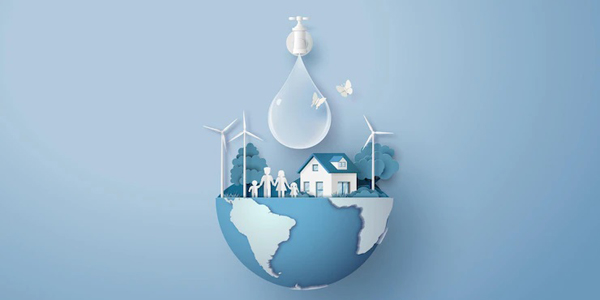Column: Water Conscious, Energy, Save Money
[Column written by BELCO]
Being water conscious is not only good for the environment but could also result in a significant reduction in your household energy consumption, which will in turn help you save money.
Much of the energy consumed around water usage is due to appliances using electricity to heat water, which includes water heaters, dishwashers, and clothes washers. When investing in new or replacement appliances that heat water, you should ideally invest in energy efficient rated appliances to ensure you energy consumption is kept to a minimum.
Water Heaters
Water heaters consume large amounts of energy, but there are some things that you can do that may assist:
- 1. Install a timer, so the water is heated only when needed otherwise energy is required to keep the water hot all day when not in use.
- 2. Pay attention to the water temperature of your shower or bath – the cooler the better in terms of energy use.
- 3. In the bathroom, turn the tap off when brushing your teeth or washing your face as otherwise you can waste more than six litres of water per minute while a tap is running.
Clothes Washers
For clothes washers, an astounding 90%1 of energy usage is consumed to heat the water alone. Washing clothes at cooler temperatures can save significant amounts of energy. Washing clothes at 30°C rather than higher temperatures can save up to 40%2 on your washing bills – you’ll have to do a hot wash sometimes but sticking to 30°C whenever possible can make a big difference.
And don’t forget, air-drying your laundry rather than tumble-drying it, particularly if the weather is warm or windy will also help you reduce consumption and costs.
Dishwashers
Beyond the manufacturer recommended specification to optimise energy and water consumption of ensuring the dishwasher is the right size to suit your needs and the racks fully filled, there are also several other tips you could consider using to reach optimal efficiency in terms of consumption:
- 1. The dishwasher uses the same amount of water whether it’s half-full or completely full so it’s best to wash full loads. Putting dishes in the dishwasher throughout the day and running it once in the evening will use less water and energy than washing the dishes by hand throughout the day. If you find that it takes two or three days to get a full load, use the rinse and hold feature common on newer models.
- 2. It is also important to pay close attention to the cycle options on your dishwasher and select the cycle that requires the least amount of energy for the job. Many appliances have energy saving options including “eco” cycles designed to minimise the amount of energy and water consumed.
- 3. Use the no-heat air-dry feature on your dishwasher if it has one. If you have an older dishwasher that doesn’t include this feature, you can turn the dishwasher off after the final rinse cycle is completed and open the door to allow air drying.
- 4. Scrape plates and dishes don’t rinse – studies show that most people pre-rinse dishes before loading them into the dishwasher which wastes water and energy. Modern dishwashers purchased within the last 10 years do a great job of cleaning even heavily soiled dishes. By not pre-rinsing dishes before loading you will save time as well as water and energy.
Kitchen Water & Energy Conservation Tips
Energy and water can also be conserved in the kitchen when cooking with the following tips:
- 1. When boiling water in a pot for cooking, use only the amount you need to cover the food being prepared. The same is true for boiling a kettle to make a cup of tea or coffee – only boil the amount you need.
- 2. Put lids on pots and turn down the heat when the water starts to boil – lids not only keep heat in a pot but also cut condensation in the kitchen
Pools & Hot Tubs
Pools and hot tubs can also require lots of water and energy and it’s best to keep pools and hot tubs covered. Keeping the heat trapped underneath the cover of a swimming pool or hot tub means you’ll have to spend less energy heating them up again when you’re ready to use them. You can also buy solar covers to heat the water. To ensure optimal water and energy use for pools and hot tubs it is best to consult a professional who can adjust pumps and cleaning equipment to the ideal settings.
Read More About
Category: All, Business, Environment, News


